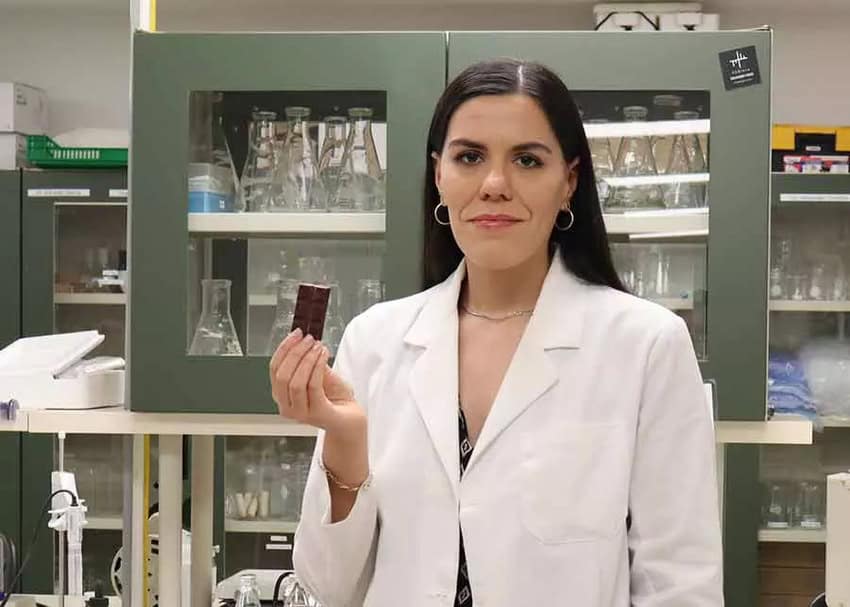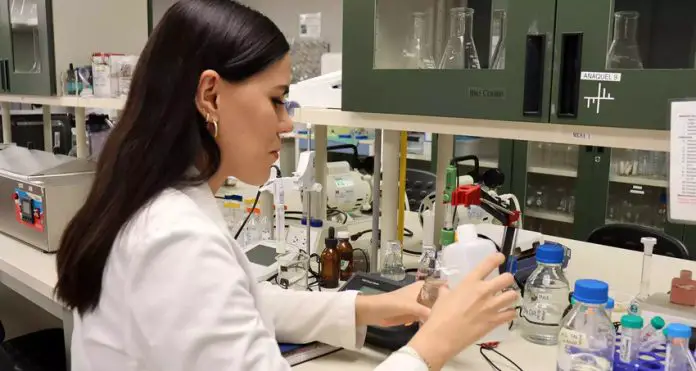Among our rich variety of animal and plant-based products, Mexico is home to cacao, the key ingredient in chocolate. A beloved treat for children and adults alike, cacao has been used in different products — edible and otherwise — for hundreds of years. Biotechnologist Paulina Faccinetto Beltrán was building on this legacy when she developed Lucid Mind, a chocolate bar designed to enhance children’s cognitive abilities and protect their brain health.
The idea for Lucid Mind originated during Faccinetto’s master’s studies at the Guadalajara campus of the Tecnológico de Monterrey. “My goal was to create a functional food that promotes health,” she shares. “After researching contemporary health issues, I chose to focus on children,” she shares in an interview. The challenge was to create a product that would be good for and liked by children.

The science behind Lucid Mind
Scientific evidence supports the benefits of chocolate for children, and Faccineto explains that including probiotic compounds in Lucid Mind aims to further enhance these effects. The chocolate bar is also enriched with omega-3 and vitamin D3, which are proven to support mental health. They help improve concentration, boost memory, and reduce attention problems in children.
By choosing milk chocolate as the delivery vehicle, Faccinetto and her team ensure the product is both effective and appealing. What kid wouldn’t love to have a bar of chocolate a day? It’s no coincidence that a bar a day is exactly the recommended dose for this product.
Prioritizing mental health from a young age
When asked why it is so important to safeguard children’s cognitive health from an early age, and if Lucid Mind is an attempt to make children “smarter,” Faccinetto emphasizes that today’s children may face higher risks of depression and dementia as they grow if their memory is not nurtured. Lucid Mind aims to prevent cognitive decline and memory issues later in life by addressing these concerns during childhood.
While it’s natural for memory to decline with age, Faccinetto advocates for early intervention. “We need to address these issues much earlier,” she states. “The goal is not to create child prodigies but to ensure mental well-being. But we will have smarter children and less learning difficulties,” particularly as modern lifestyles — marked by fast-paced, hyper-connected environments — increase stress statistics on younger generations.
Mexico ranks sixth in the world for the number of children who suffer from diabetes, so the idea of supporting children’s health with chocolate is bound to raise eyebrows. When questioned about the potential impact of sugar in Lucid Mind, Faccinetto says that the product is formulated with active probiotic compounds, which not only mitigate any negative effects of sugar but also serve as anti-inflammatory, antioxidant, and neuroprotective agents for the brain. Combining these elements with catechins and chocolate’s natural antioxidants makes Lucid Mind a potent ally in promoting children’s cognitive health.
From concept to reality
Lucid Mind is currently in the patent process with the Mexican Institute of Industrial Property (IMPI). The product is also part of De la Ciencia al Mercado (From Science to the Market), a program of the government of Jalisco aimed at fostering technology-based startups using university research.
During the testing phase, Faccinetto confirmed that consuming a daily portion of Lucid Mind does not lead to harmful effects like obesity. However, she advises that children’s health, including conditions like diabetes, must be considered before consumption. A child with diabetes would not be a candidate for this preventive treatment.
As Lucid Mind prepares to enter the market, it has undergone various market studies to identify potential suppliers. In the coming months, clinical trials will be conducted in a school, where children will consume the chocolate daily for three months. These trials will assess the Lucid Mind’s impact on their memory and monitor other factors, such as the children’s weight.
Camila Sánchez Bolaño is a journalist, feminist, bookseller, lecturer, and cultural promoter and is Editor in Chief of Newsweek en Español magazine.
